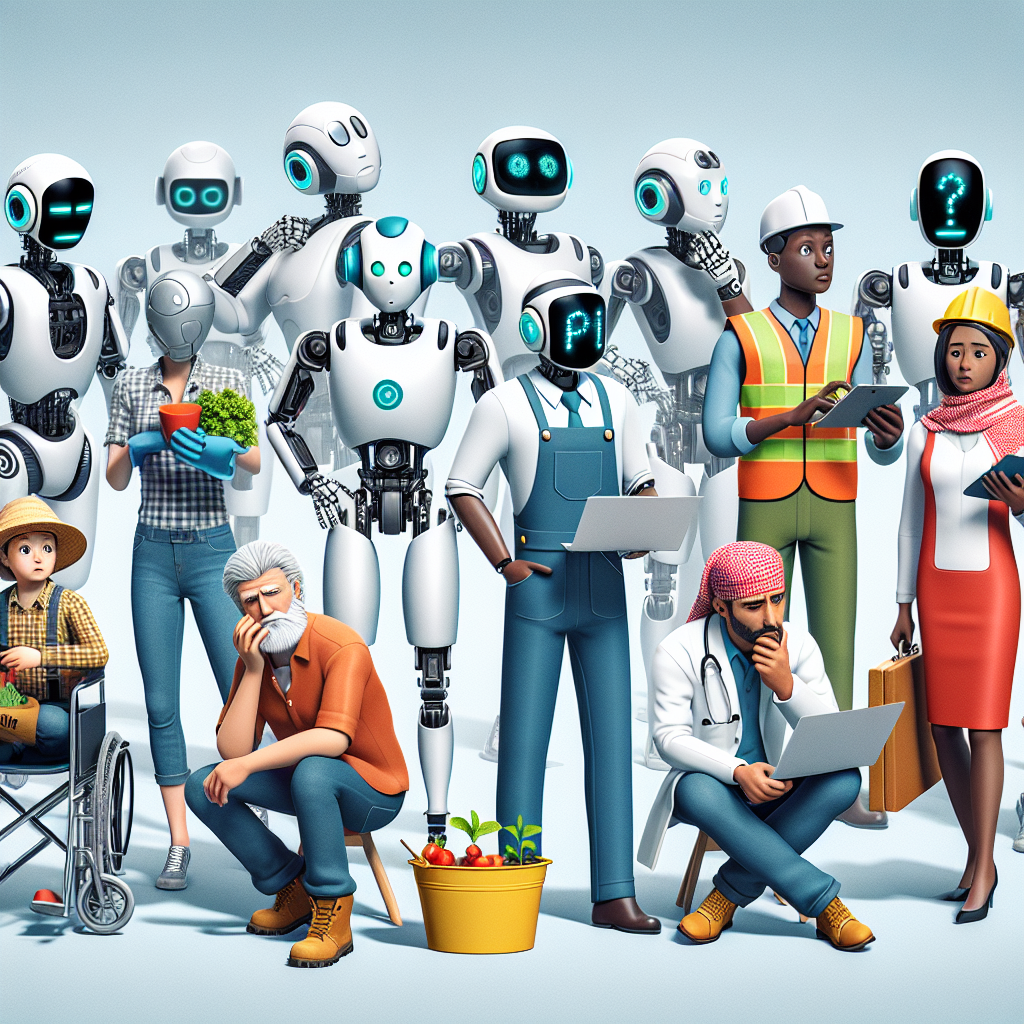The Impact of AGI on the Job Market: Will Robots Replace Human Workers?
Artificial General Intelligence (AGI) is a term that refers to machines that possess the ability to perform any intellectual task that a human can do. With the rapid advancements in AI technology, there is growing concern about the potential impact of AGI on the job market. Will robots eventually replace human workers, leading to mass unemployment? In this article, we will explore the potential impact of AGI on the job market and discuss the implications for workers and society as a whole.
AGI and Automation
One of the main concerns surrounding AGI is the potential for automation of jobs that are currently performed by humans. With the ability to think and reason like humans, AGI could potentially outperform humans in a wide range of tasks, leading to increased automation in various industries. This could result in the displacement of human workers and lead to mass unemployment in certain sectors.
The Impact on Different Industries
The impact of AGI on the job market will vary depending on the industry. Some sectors, such as manufacturing and transportation, are already seeing increased automation with the use of AI technology. AGI could further accelerate this trend, leading to the replacement of human workers with robots and AI systems. Other industries, such as healthcare and education, may also be affected as AGI systems become more capable of performing complex tasks traditionally done by humans.
The Potential for Job Creation
While the potential for job displacement is a major concern, some experts argue that AGI could also create new job opportunities. As AI systems become more advanced, there will be a growing demand for workers who can design, develop, and maintain these systems. Additionally, new industries and job roles may emerge as a result of AGI, leading to new opportunities for workers.
The Need for Reskilling and Upskilling
One of the key challenges posed by AGI is the need for workers to reskill and upskill in order to adapt to the changing job market. As automation and AI technology continue to advance, workers will need to acquire new skills and knowledge in order to remain competitive in the workforce. This will require investment in education and training programs to help workers transition to new roles and industries.
The Role of Government and Policy
Given the potential impact of AGI on the job market, there is a growing need for government intervention and policy measures to address the challenges posed by automation and AI technology. This may include measures such as retraining programs for displaced workers, incentives for companies to invest in new technologies, and regulations to ensure that AI systems are used ethically and responsibly.
FAQs
Q: Will robots completely replace human workers in the future?
A: While it is possible that robots and AI systems could replace some human workers in certain industries, it is unlikely that they will completely replace humans in the workforce. Many tasks require human judgment, creativity, and emotional intelligence, which are difficult for AI systems to replicate.
Q: What can workers do to prepare for the impact of AGI on the job market?
A: Workers can prepare for the impact of AGI by acquiring new skills and knowledge that are in demand in the workforce. This may include learning how to use AI technology, developing problem-solving skills, and staying up to date on industry trends.
Q: How can governments and policymakers address the challenges posed by AGI?
A: Governments and policymakers can address the challenges posed by AGI by investing in education and training programs, implementing regulations to ensure the responsible use of AI technology, and providing support for workers who are displaced by automation.
In conclusion, the impact of AGI on the job market is a complex and multifaceted issue that will require careful consideration and planning. While there are concerns about the potential displacement of human workers, there is also the potential for new job opportunities and economic growth. By investing in education and training programs, supporting workers through transitions, and implementing responsible policies, we can ensure that AGI benefits society as a whole.

